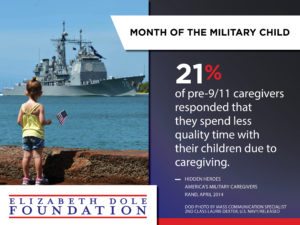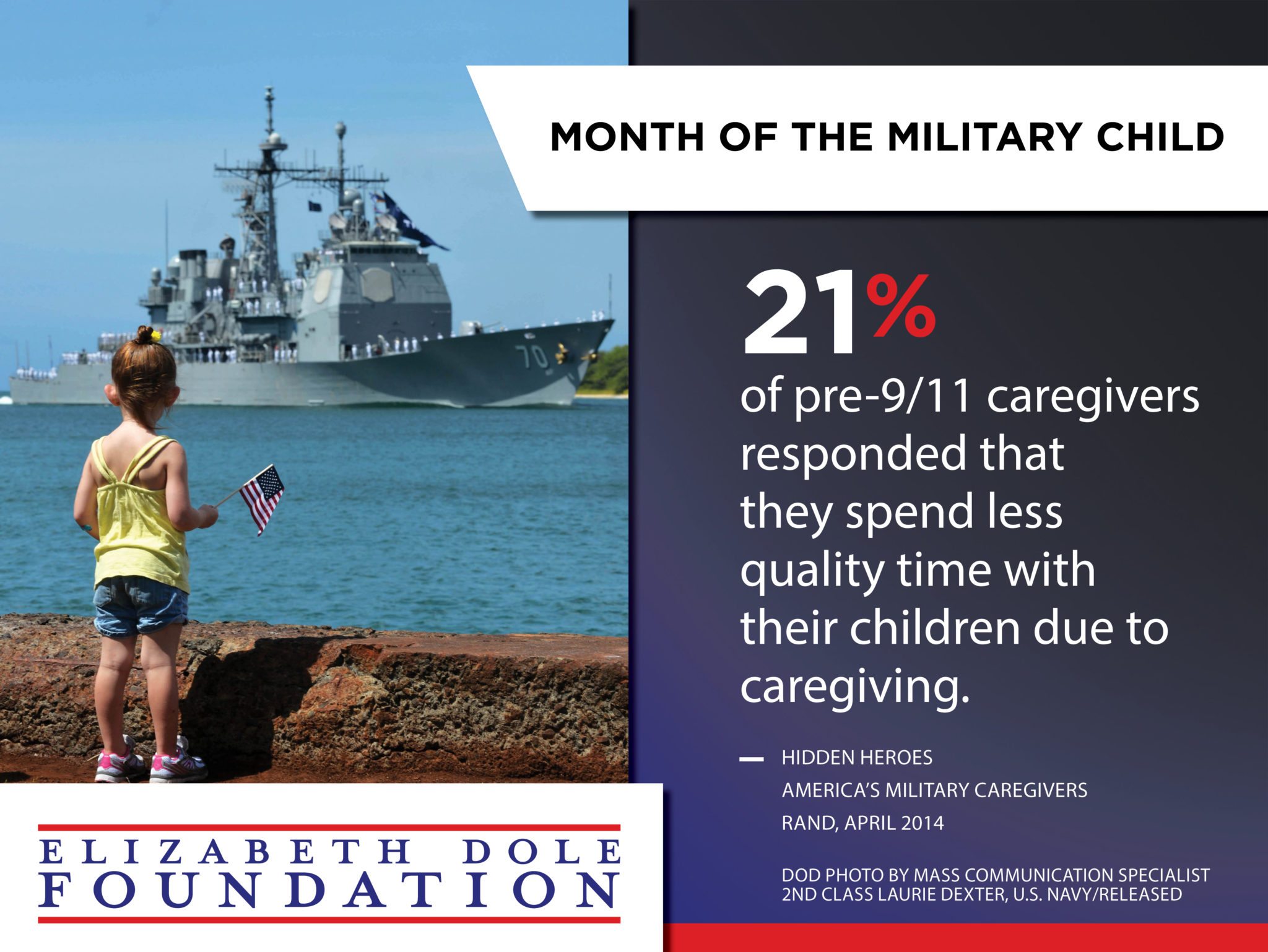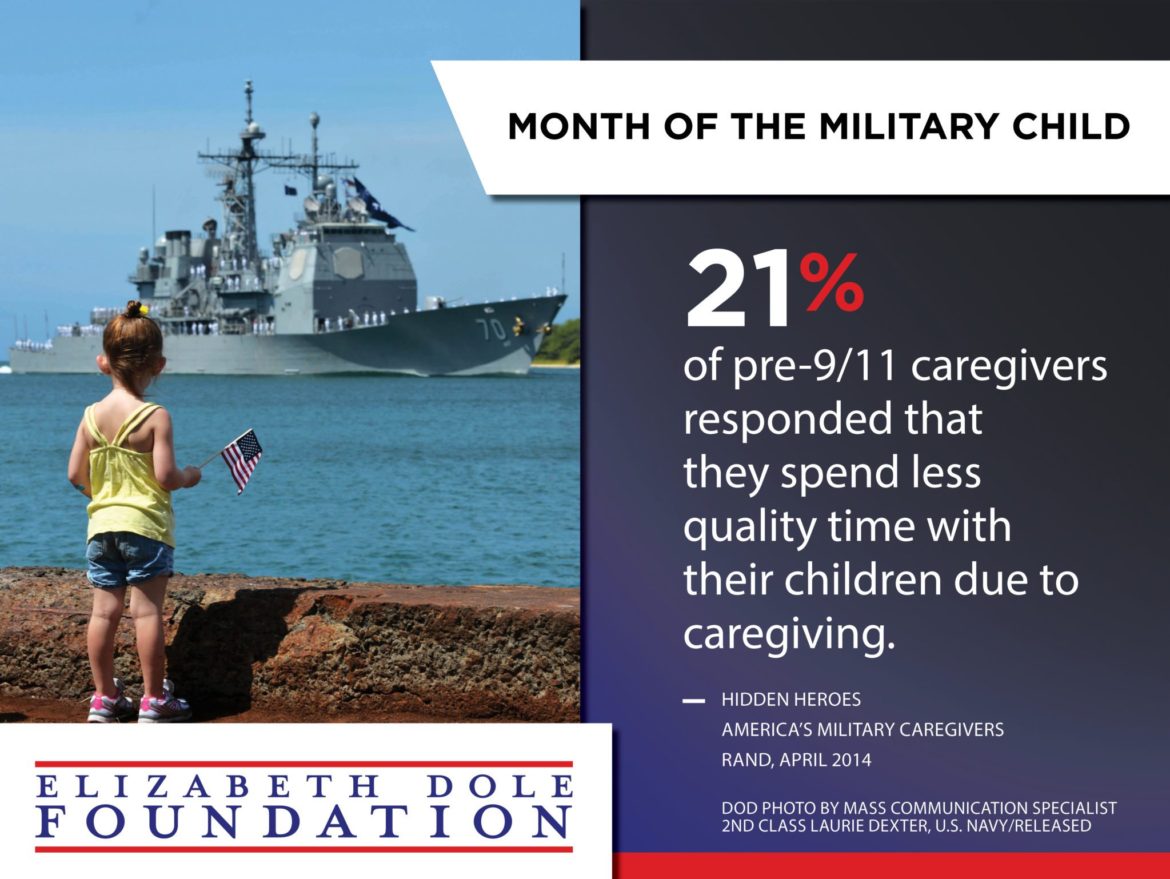 In the weeks leading up to the commemoration of Month of the Military Child in April, the Foundation asked our Dole Caregiver Fellows to share how their kids provide care, too. Brenda Machacek, Dole Caregiver Fellow alumna, responded, “There are times when our 15 year old son is the only one who can talk my husband down.” Sarah Martinez, 2016 Dole Caregiver Fellow, said, “My children are the reason that I take care of myself, so that I can be the best mother for them and caregiver for my husband.”
In the weeks leading up to the commemoration of Month of the Military Child in April, the Foundation asked our Dole Caregiver Fellows to share how their kids provide care, too. Brenda Machacek, Dole Caregiver Fellow alumna, responded, “There are times when our 15 year old son is the only one who can talk my husband down.” Sarah Martinez, 2016 Dole Caregiver Fellow, said, “My children are the reason that I take care of myself, so that I can be the best mother for them and caregiver for my husband.”
The most common relationship between pre-9/11 caregivers and their care recipients are adult children caring for parents. Yet for post-9/11 veterans, their children are often much younger and serve as the assistant caregiver to mom or dad. And while they may not be the primary person in charge of care, they carry many of the responsibilities and stress that their parents face, often with an even weaker culture of support. Research finds that emotional and academic problems are more prevalent in homes where someone is suffering from a traumatic brain injury. Experts have also determined that stressors affecting parents are passed down to children.
According to our own RAND study, approximately half of pre and post-9/11 caregivers report that their children help them with caregiving. And while nearly the same percentage of caregivers report that caregiving has made them a better parent, a large number of caregivers believe their parenting has suffered as a result of the situation. These negative outcomes disproportionately affect post-9/11 caregivers; 44% say they spend less quality time with their children and 46% say they believe caregiving has created tension in the household.













Follow Us